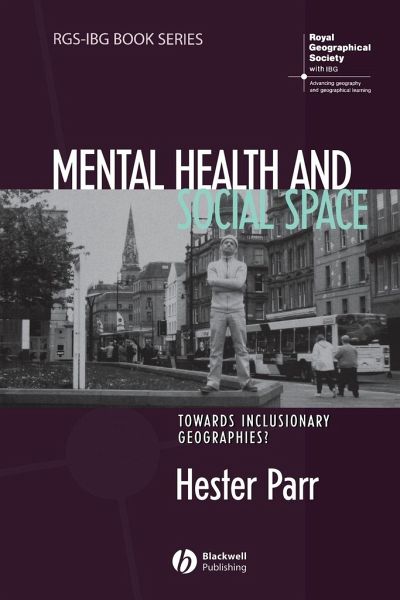
Mental Health and Social Space
Towards Inclusionary Geographies?
Versandkostenfrei!
Versandfertig in über 4 Wochen
41,99 €
inkl. MwSt.
Weitere Ausgaben:

PAYBACK Punkte
21 °P sammeln!
In the nineteenth century, 'the mad' were segregated in special asylum spaces; in the later twentieth century, these spaces were dismantled and patients discharged into the community. Now, in the twenty-first century, 'community care' is still in vogue, but what has happened to the people with mental health problems? Stories of neglect, ghettoization, homicide, and reinstitutionalization regularly litter the pages of newspapers and academic journals. Is this the whole story? Are those with severe and enduring mental health problems still living on the edges of society? This book illuminates th...
In the nineteenth century, 'the mad' were segregated in special asylum spaces; in the later twentieth century, these spaces were dismantled and patients discharged into the community. Now, in the twenty-first century, 'community care' is still in vogue, but what has happened to the people with mental health problems? Stories of neglect, ghettoization, homicide, and reinstitutionalization regularly litter the pages of newspapers and academic journals. Is this the whole story? Are those with severe and enduring mental health problems still living on the edges of society? This book illuminates the complicated reality of people living with mental health problems. It focuses on their voices, relationships, and achievements through case studies tracing innovative examples of community activity that are creating versions of social tolerance, social recovery, and peer and self-help for this consistently marginalized group. People with mental health problems are active in rescripting their own social recoveries, using different community spaces to create pathways to psychological and social stability.



